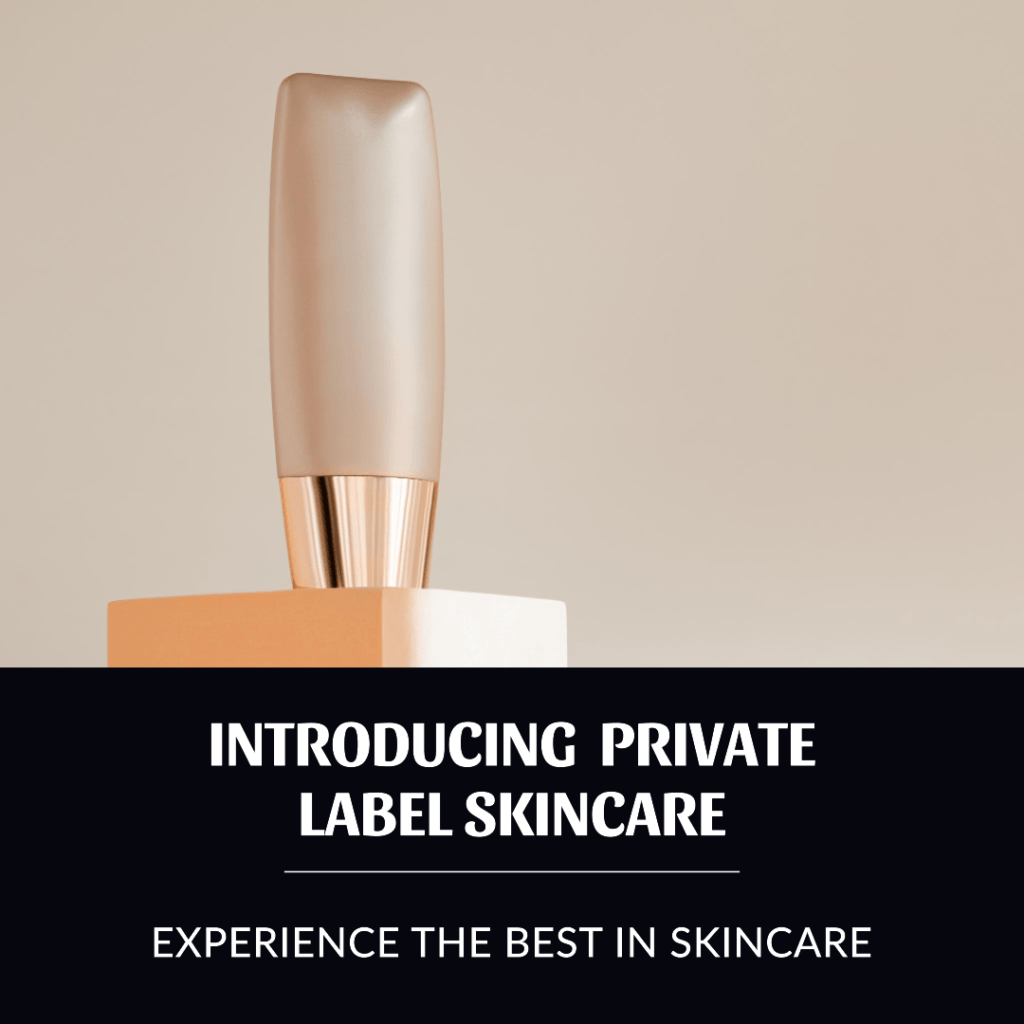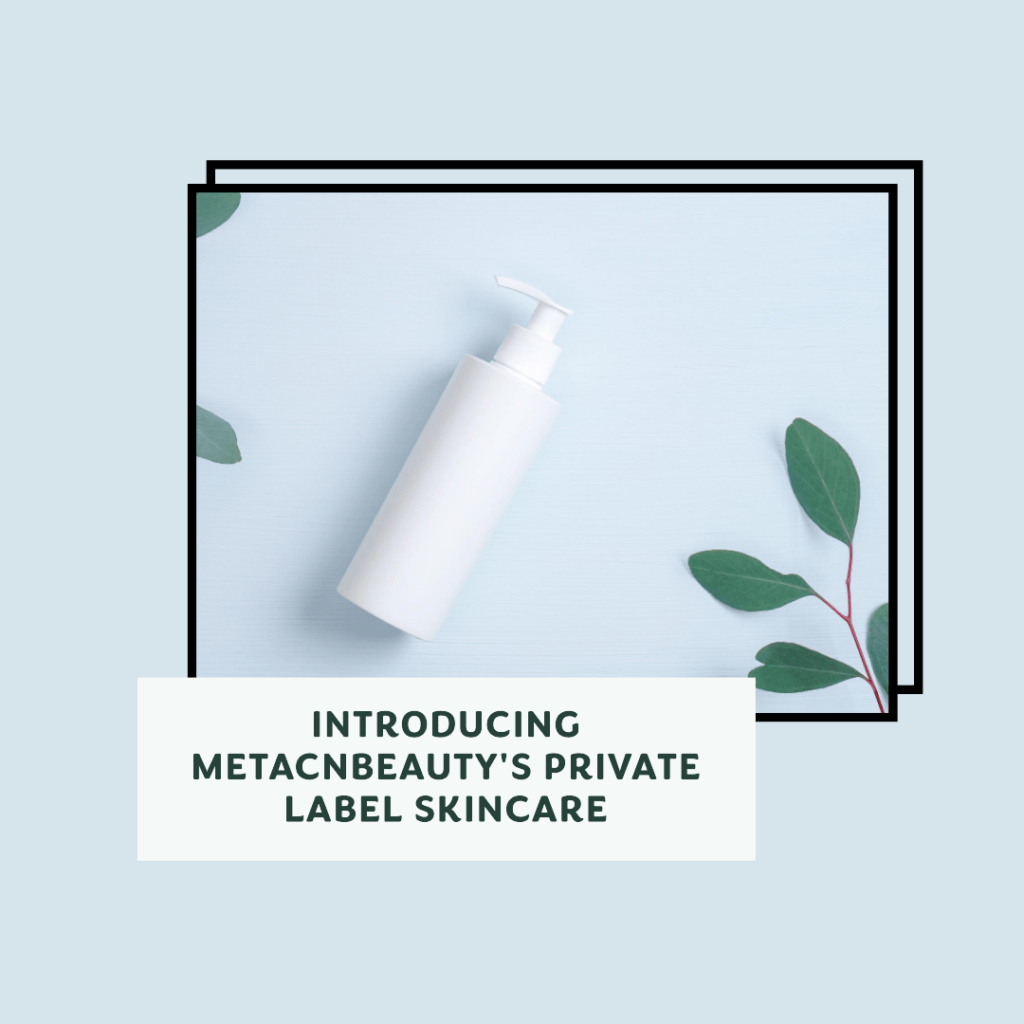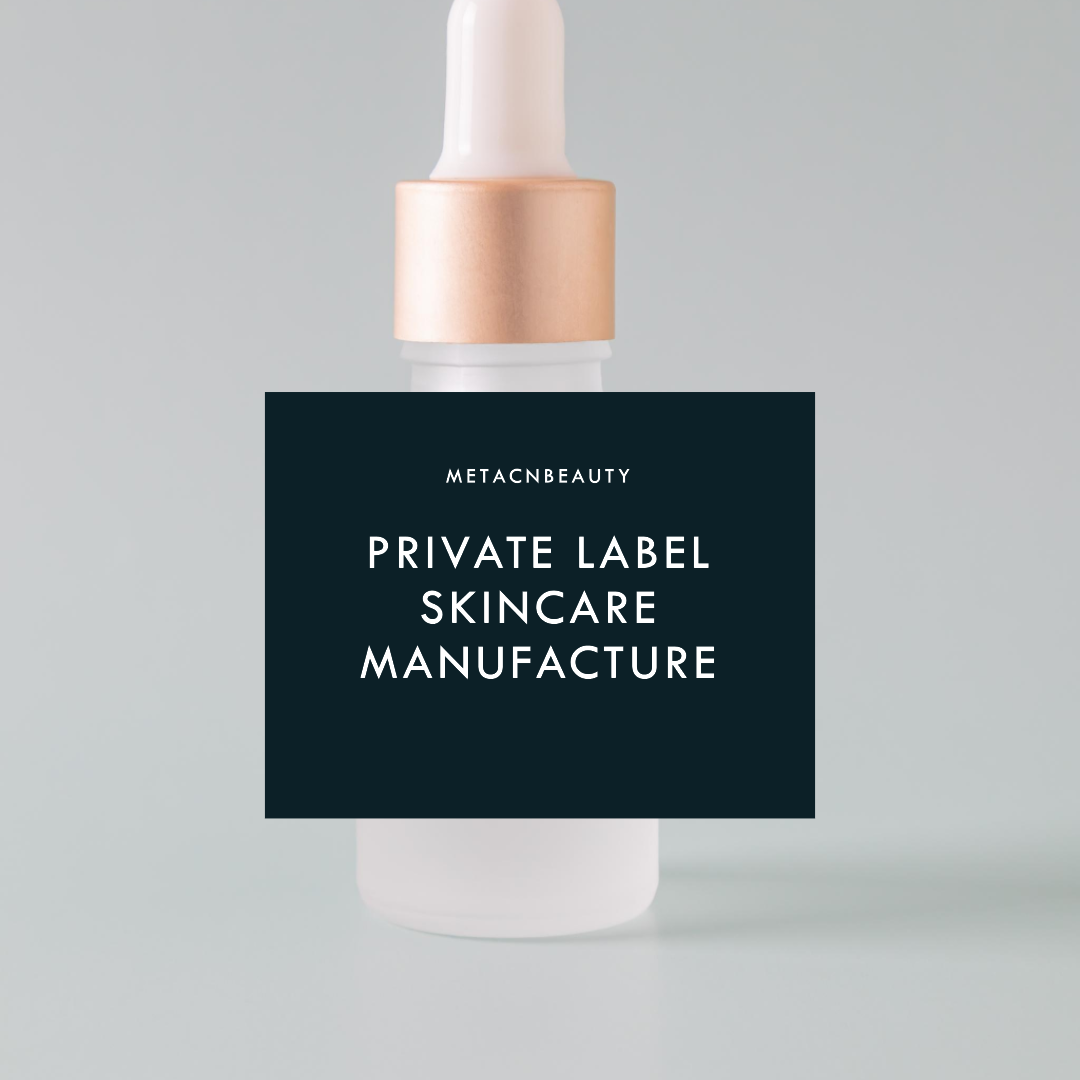In the fast-paced world of skincare, having your own line of branded products can be a game-changer. Private label skincare manufacturers have emerged as a popular choice for businesses looking to create their unique skincare lines. This article will delve into the world of private label skincare manufacturing, exploring its benefits, the process involved, and why it's a lucrative option for entrepreneurs in the beauty industry.

1. Introduction: The Boom of Private Label Skincare
The beauty industry is experiencing a significant transformation, with new trends and innovations emerging regularly. As consumers become more conscious about their skin health, they are continually searching for innovative skincare solutions that can address their specific needs. Private label skincare manufacturing has emerged as an increasingly popular option for businesses that want to cater to this demand while preserving their brand identity.

Private label skincare manufacturing refers to the process of creating skincare products that are marketed and sold under a particular brand name. This approach allows businesses to offer high-quality skincare products without investing in the research and development required to create them. Instead, they can work with a private label skincare manufacturer who has the expertise and resources to produce effective and safe skincare products.
One of the significant advantages of private label skincare manufacturing is that businesses can customize their products to meet the specific needs of their target market. This means that they can create formulations that are tailored to different skin types, concerns, and preferences. By doing so, they can differentiate themselves from their competitors and build a loyal customer base.
Private label skincare manufacturing also offers businesses more control over their supply chain and product quality. They can work closely with their manufacturing partner to ensure that their products meet their standards and specifications. Additionally, they can choose the ingredients used in their formulations, ensuring that they are safe, effective, and aligned with their brand values.
private label skincare manufacturing has become an increasingly popular option for businesses looking to offer innovative and effective skincare solutions while maintaining their brand identity. With the right manufacturing partner, businesses can create high-quality products that meet the specific needs of their target market and build a loyal customer base.
Private label skincare manufacturers are specialized companies that produce skincare products on behalf of a brand. They offer a range of ready-made formulations that businesses can customize with their branding. For example :the best Private label skincare manufacture MetaCNBeauty
3. The Advantages of Private Label Skincare
Private label skincare refers to the practice of creating skincare products that are sold under a retailer's brand name instead of the manufacturer's. This approach offers several advantages over traditional manufacturing methods. One of the main benefits is cost-effectiveness. Private label products are typically less expensive to produce than branded products, which allows retailers to offer them at a lower price point.
Another advantage of private label skincare is speed to market. Since the manufacturer does not have to spend time and resources on developing a new brand, the product can be brought to market much more quickly. This is particularly important in the fast-paced world of skincare, where trends and consumer preferences can change rapidly.
Finally, private label skincare allows retailers to focus on branding and marketing. By creating their own brand, retailers can differentiate themselves from competitors and build a loyal customer base. They can also tailor their marketing efforts to their target audience, which can lead to increased sales and customer satisfaction.
Overall, private label skincare is a cost-effective, efficient, and effective way for retailers to offer high-quality skincare products to their customers.
4. How Private Label Skincare Manufacturing Works
The manufacturing process is a complex and multi-step process that involves various stages. The first stage is product selection, where the manufacturer decides on the product to be produced. This involves market research, analyzing consumer needs, and identifying the target market.
Once the product has been selected, the next stage is customization. This involves designing the product to meet the specific requirements of the target market. Customization can involve changes to the product design, materials used, or production methods.
The production stage is where the actual manufacturing of the product takes place. This involves setting up production lines, sourcing raw materials, and using specialized equipment to manufacture the product. The production stage also involves quality control measures to ensure that the final product meets the required standards.
The final stage of the manufacturing process is packaging. This involves designing and creating packaging materials that protect the product during transportation and storage. Packaging also plays a crucial role in marketing the product and attracting customers.
Overall, understanding the manufacturing process is crucial for manufacturers to produce high-quality products efficiently and effectively. By optimizing each stage of the process, manufacturers can reduce costs, improve product quality, and increase customer satisfaction.
5. Selecting the Right Manufacturer
When it comes to private label manufacturing, selecting the right manufacturer is crucial for the success of your business. There are several factors that should be carefully considered before making a decision.

The best private label skincare and cosmetics manufacture In China
Firstly, expertise is an important factor to consider. You want to work with a manufacturer that has experience and knowledge in your industry and product category. This will ensure that they understand your specific needs and can provide valuable insights and recommendations.
Reputation is another critical factor. You want to work with a manufacturer that has a good reputation in the industry for producing high-quality products and delivering on time. You can research a manufacturer's reputation by reading reviews, checking references, and looking at their track record.
Capabilities are also important. You want to work with a manufacturer that has the necessary equipment, technology, and resources to produce your products at the required volume and quality level. You should also consider their production capacity, lead times, and ability to handle customizations and special requests.
Overall, choosing the right private label manufacturer requires careful consideration of several factors. By doing your research and evaluating potential manufacturers based on their expertise, reputation, and capabilities, you can make an informed decision that will benefit your business in the long run.
6. Customizing Your Skincare Line
The statement suggests that personalization is crucial for achieving success. It emphasizes the importance of understanding the needs and preferences of the target audience and tailoring products or services accordingly. By doing so, businesses can increase customer satisfaction and loyalty, leading to greater success in terms of sales and profitability. Personalization can be achieved through various means, such as customizing product features, offering personalized recommendations, or providing tailored marketing messages. Overall, the ability to personalize products and services is a valuable skill for businesses to develop in order to meet the ever-changing demands of their customers.
7. Quality Control in Private Label Manufacturing
Maintaining quality standards is of utmost importance in any industry. Ensuring that products meet the expectations of customers is crucial for the success and reputation of a company. There are several steps that can be taken to ensure that quality standards are maintained and that products consistently meet expectations.
Firstly, it is essential to establish clear quality standards and specifications for the products. This includes defining the desired characteristics, performance criteria, and any specific requirements that the products must meet. Clear and detailed specifications provide a benchmark against which the products can be evaluated.
Secondly, implementing a robust quality control system is vital. This involves conducting regular inspections and tests throughout the production process to identify any deviations or defects. Quality control measures can include visual inspections, product sampling, and laboratory testing. By consistently monitoring the products, any issues can be identified and addressed promptly.
Additionally, it is important to have a well-trained and skilled workforce. Providing training and education to employees on quality standards and expectations can help ensure that they understand the importance of maintaining quality and are equipped with the necessary knowledge and skills to meet these standards.
Moreover, establishing effective communication channels with suppliers and partners is crucial. This allows for clear communication of quality requirements and expectations, as well as providing a platform for addressing any concerns or issues that may arise during the production process. Regular communication and collaboration with suppliers can help ensure that they are also committed to maintaining quality standards.
Furthermore, implementing a feedback system from customers can provide valuable insights into the quality of the products. Customer feedback can help identify any areas where improvements can be made and can also serve as a measure of customer satisfaction. This feedback can be collected through surveys, reviews, or direct communication channels.
In conclusion, maintaining quality standards is essential for ensuring that products meet customer expectations. By establishing clear specifications, implementing a robust quality control system, providing training to employees, communicating effectively with suppliers, and collecting customer feedback, companies can take proactive steps to ensure that their products consistently meet high-quality standards.
Effective marketing strategies can make or break your brand. Discover tips to promote your skincare line successfully.
9. Pricing Strategies
Pricing is a critical aspect of any business as it directly affects profitability. A company needs to set the right price point for its products or services to maximize revenue and stay competitive in the market. There are several pricing strategies that businesses can adopt, each with its own implications.
One common strategy is cost-plus pricing, where a company adds a markup to its production costs to determine the selling price. This approach ensures that the business covers its costs and earns a profit but may not reflect market demand or competition.
Another strategy is value-based pricing, which considers the perceived value of the product or service to the customer. This approach allows companies to charge higher prices for products that are perceived as more valuable, such as luxury goods or premium services.
Dynamic pricing is another strategy that involves adjusting prices based on market demand and other factors such as time of day or seasonality. This approach allows companies to maximize revenue by charging higher prices during peak demand periods and lower prices during off-peak times.
Penetration pricing is a strategy used to gain market share by setting a low price initially to attract customers. This approach can be effective in highly competitive markets but may not be sustainable in the long term.
Ultimately, businesses need to consider various factors such as production costs, market demand, competition, and customer perception when setting their pricing strategy. By understanding the implications of different pricing strategies, companies can make informed decisions that maximize profitability and growth.
10. Expanding Your Product Line
The text suggests that as a brand grows, it should consider diversifying its product range to keep up with changing consumer demands. This is a common strategy used by successful companies to maintain relevance and stay competitive in the market. By expanding the product range, a brand can cater to a wider range of customers and offer more options to meet their needs and preferences. This can also help to increase sales and revenue, as well as improve brand recognition and customer loyalty. However, it is important for brands to carefully research and analyze the market and consumer trends before introducing new products, to ensure that they are relevant and in demand.
11. Challenges and Considerations
Private label skincare manufacturing involves creating skincare products for a brand or retailer that is then sold under their own label. This can present unique challenges and considerations compared to manufacturing for a single brand or product line.
One challenge is ensuring that the products meet the specific needs and preferences of the private label client. This may require customization of formulas, packaging, and labeling to align with the client's brand identity and target market. Additionally, private label manufacturing often involves smaller production runs, which can impact economies of scale and increase costs.
Another consideration is maintaining quality control and consistency across multiple product lines and formulations. Private label manufacturers must have strict quality assurance processes in place to ensure that each product meets the same high standards.
Finally, private label skincare manufacturing requires a strong understanding of the regulatory landscape. Manufacturers must be aware of relevant regulations and guidelines for ingredients, labeling, and marketing claims to ensure compliance with industry standards.
Overall, private label skincare manufacturing requires a high level of flexibility, attention to detail, and expertise in order to meet the unique needs of each client while maintaining quality and compliance.
12. Case Studies: Success Stories
Private label skincare is a growing trend in the beauty industry, with many brands finding success by creating their own line of skincare products. By developing their own private label skincare, brands can offer unique formulations and packaging, and have greater control over the quality of their products.
There are many success stories of brands that have thrived through private label skincare. For example, Trader Joe's has a popular line of skincare products under their private label brand. Their products are affordable and effective, and have gained a loyal following among customers.
Another brand that has found success with private label skincare is Sephora. Their Sephora Collection line offers a wide range of skincare products, from cleansers and toners to masks and serums. By creating their own line of skincare products, Sephora has been able to offer high-quality products at a more affordable price point than some of the other brands they carry.
Other brands that have thrived through private label skincare include Target's Up&Up line and Walmart's Equate line. Both of these brands offer affordable and effective skincare products that are popular among customers.
Overall, private label skincare can be a great way for brands to differentiate themselves in a crowded market and offer unique products to their customers. By learning from the success stories of other brands, companies can develop their own private label skincare lines that are both profitable and popular among consumers.
13. The Future of Private Label Skincare
The private label skincare industry is a rapidly growing sector that offers a range of opportunities for businesses and entrepreneurs. As consumers become more aware of the importance of skincare and the impact of ingredients on their skin, they are increasingly seeking out products that are tailored to their specific needs and preferences.
One of the key trends in the private label skincare industry is the rise of natural and organic products. Consumers are becoming more conscious of the environmental impact of their purchases, and are seeking out products that are free from harmful chemicals and ingredients. This has led to an increase in demand for natural and organic skincare products, which offer a range of benefits for the skin without the use of harsh chemicals.
Another trend in the private label skincare industry is the use of advanced technology and ingredients. Many skincare companies are investing in research and development to create innovative products that use cutting-edge technology and ingredients to deliver superior results. This includes products that use nanotechnology, stem cells, and other advanced ingredients to target specific skin concerns and deliver visible improvements.
In addition to these trends, there are also a range of opportunities for businesses and entrepreneurs in the private label skincare industry. Private label products offer a cost-effective way to enter the market, as they can be customized to meet the specific needs and preferences of customers. This allows businesses to differentiate themselves from competitors and build a loyal customer base.
Overall, the private label skincare industry is a dynamic and growing sector that offers a range of opportunities for businesses and entrepreneurs. By staying up-to-date with the latest trends and investing in research and development, businesses can create innovative products that meet the needs of consumers and drive growth in the industry.
14. Conclusion
Private label skincare manufacturing is a business model where a company produces skincare products for other companies to sell under their own brand name. It offers a promising path for entrepreneurs looking to enter the beauty industry because it allows them to establish their own brand without having to invest in expensive research and development, manufacturing, and packaging facilities.
To succeed in private label skincare manufacturing, entrepreneurs must have the right strategies and a commitment to quality. They must be able to identify market trends, develop unique formulations, and create attractive packaging that appeals to their target audience. They must also ensure that their products meet high standards of quality and safety, and that they comply with all relevant regulations.
One of the advantages of private label skincare manufacturing is that it allows companies to focus on marketing and sales, rather than on product development and production. This can result in faster time-to-market, lower costs, and higher profits. However, it also requires a strong understanding of the market and the ability to create products that meet the needs and preferences of consumers.
In conclusion, private label skincare manufacturing offers a promising path for entrepreneurs looking to enter the beauty industry. With the right strategies and a commitment to quality, your brand can flourish in this competitive market. It is important to stay up-to-date with market trends, invest in product development, and create attractive packaging that appeals to your target audience. By doing so, you can establish a successful brand that stands out in the crowded skincare market.

